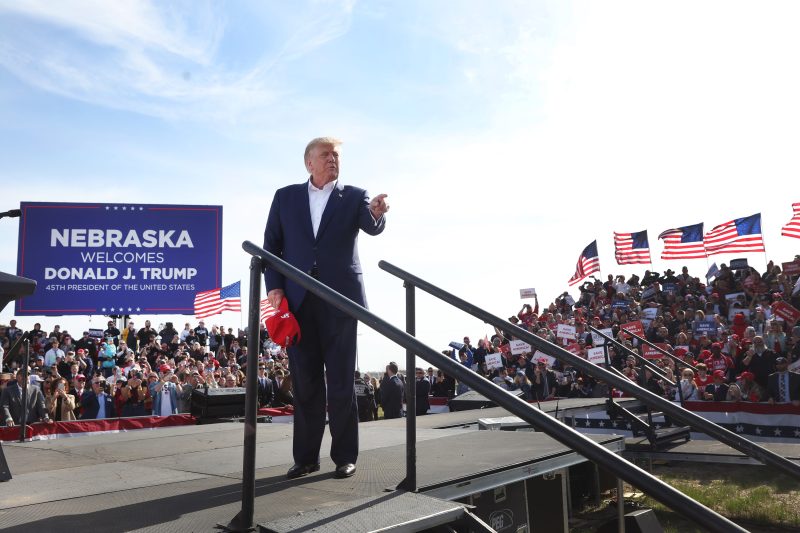In the modern political landscape of the United States, election results and the allocation of electoral votes have become a subject of intense debate and scrutiny. Recently, former President Donald Trump has once again thrust this issue into the spotlight by ramping up his push for Nebraska to change its electoral vote allocation system.
Nebraska, along with Maine, is one of only two states in the country that does not adhere to the winner-takes-all method of awarding electoral votes. Instead, both states employ a system that allocates electoral votes based on the winner of each individual congressional district, with the remaining two votes going to the statewide winner.
Trump’s efforts to change Nebraska’s electoral vote allocation system are rooted in his belief that a more straightforward winner-takes-all approach would benefit his party, the Republicans. By pursuing this change, Trump aims to secure all of Nebraska’s electoral votes for the presidential candidate who wins the popular vote in the state.
While Trump’s push for Nebraska to adopt a winner-takes-all system may seem like a strategic political move, it has sparked controversy and drawn criticism from opponents who view it as an attempt to manipulate the electoral process for partisan gain. Critics argue that a winner-takes-all system could potentially disenfranchise voters, especially those who support candidates from other parties or minority groups.
Supporters of the current system in Nebraska argue that the state’s unique method of allocating electoral votes ensures that each congressional district’s voice is heard, rather than allowing the entire state’s electoral votes to be decided solely by the popular vote. This approach is seen as a way to promote fairness and representativeness in the electoral process.
In the midst of these debates and arguments, the issue of electoral vote allocation in Nebraska remains a contentious and complex matter. The outcome of Trump’s push for a change in the system is uncertain, but it serves as a reminder of the ongoing challenges and controversies surrounding the electoral process in the United States. As the country continues to grapple with these issues, the importance of fair and equitable election practices remains a critical concern for the preservation of democracy and the integrity of the electoral system.



























